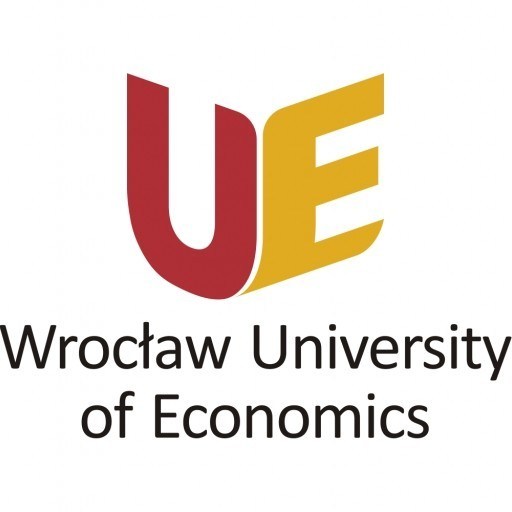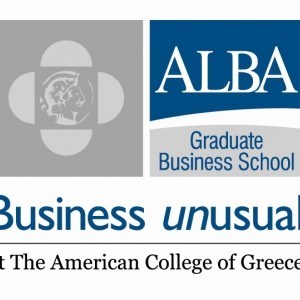Photos of university / #londonschoolofeconomics
The BSc in Finance and Economics at the London School of Economics and Political Science offers a rigorous and comprehensive undergraduate education designed to provide students with a strong foundation in both financial markets and economic theory. This programme prepares students for a wide range of careers in finance, banking, consultancy, policy analysis, and further academic study. The curriculum combines core modules in microeconomics, macroeconomics, and quantitative methods with specialized courses in finance, investment analysis, corporate finance, and financial markets. Students will develop analytical skills and numerical proficiency essential for understanding complex financial instruments, economic phenomena, and policy issues.
Throughout the programme, students engage with real-world data and case studies, fostering critical thinking and problem-solving abilities. The programme emphasizes the application of economic theory and financial concepts to practical contexts, enabling students to evaluate economic policies, investment strategies, and market behavior accurately. Teaching methods include lectures, seminars, tutorials, and workshops, often supplemented with computer lab sessions to enhance quantitative skills.
The BSc in Finance and Economics also offers opportunities for students to undertake independent research projects and internships, providing practical experience and networking opportunities within the finance industry. The programme is designed to develop not only technical expertise but also transferable skills such as teamwork, communication, and ethical reasoning, all highly valued in professional environments. Graduates of this programme are well-prepared for careers in investment banking, asset management, economic consultancy, financial regulation, and policy advisory roles, as well as for pursuing postgraduate studies. With a distinguished academic staff and a vibrant academic community, students benefit from LSE’s global outlook and strong connections with industry partners, ensuring a dynamic and enriching learning experience.
The MSc in Banking and Finance at the London School of Economics and Political Science offers a comprehensive and rigorous program designed to prepare students for the dynamic world of banking, finance, and financial markets. The curriculum combines theoretical foundations with practical applications, ensuring graduates develop a deep understanding of the key concepts and skills necessary to succeed in the financial industry. Students will explore a wide range of topics, including financial markets and instruments, banking operations, financial regulation, risk management, quantitative methods, and financial technology. The programme emphasizes the roles of banks and financial institutions in the economy, the functioning of financial markets, and the principles of investment and asset management.
Throughout the course, students engage with case studies, real-world data, and industry-relevant projects to hone their analytical and decision-making abilities. The program also covers important contemporary issues such as financial stability, ethical considerations in banking, and emerging trends like fintech and digital currencies. A significant component of the MSc involves understanding the regulatory environment that governs financial institutions and markets, equipping students with the knowledge to navigate both domestic and international financial systems.
Students have access to LSE’s extensive alumni network, industry talks, and internship opportunities, enhancing their employability in banking, asset management, hedge funds, and financial consultancy sectors. The program is suitable for graduates aiming to pursue careers in financial analysis, risk management, banking, or regulatory roles, as well as those interested in further academic research. With its distinguished faculty, rigorous coursework, and focus on practical skills, the MSc in Banking and Finance at LSE provides an excellent foundation for a successful career in the global financial industry.
Program requirements for the MSc in Banking and Finance at the London School of Economics and Political Science (LSE) include a strong academic background in relevant quantitative and financial disciplines, typically requiring applicants to hold an undergraduate degree with a high standard, often a first or upper second class honours or equivalent from a recognized university. Applicants are expected to demonstrate proficiency in quantitative methods, economics, and finance, evidenced through academic transcripts and relevant coursework. Prior experience or knowledge in areas such as statistical analysis, econometrics, financial markets, or banking operations can be advantageous. A statement of motivation describing the applicant’s interest in banking and finance, career ambitions, and reasons for choosing LSE’s programme is usually required. Additionally, candidates must provide English language proficiency test scores if their previous education was not conducted in English, with accepted tests including TOEFL or IELTS, meeting specified minimum scores. References from academic or professional referees who can attest to the applicant’s potential for postgraduate study are also necessary. The application process involves submitting a completed online application form through the LSE admissions portal, along with all supporting documents. The program may also require a CV or resume outlining relevant professional experience, internships, or extracurricular activities related to finance or banking sectors. The selection process is competitive, emphasizing academic excellence, relevant experience, motivation, and potential contribution to the programme community. Successful applicants are expected to attend introductory sessions and comply with the university’s codes of conduct and registration procedures. The curriculum combines foundational courses in quantitative methods, financial markets, and banking operations with advanced electives, preparing students for careers in investment banking, financial consulting, risk management, or regulatory agencies. Throughout the programme, students are encouraged to engage with industry practices, participate in seminars, and undertake independent research projects to deepen their understanding of contemporary banking and financial issues.
Funding for the MSc Finance program at the London School of Economics and Political Science (LSE) is available through various channels, including scholarships, studentships, and financial aid options. LSE offers several scholarships specifically aimed at international and domestic students pursuing postgraduate degrees in Finance. These include the LSE Excellence Scholarship, which is awarded based on academic achievement and potential, and the Government of the Netherlands’ Holland Scholarship for students from the Netherlands. Additionally, students may be eligible for external funding sources such as government loans, bursaries, or private sponsorships, depending on their country of residence and individual circumstances.
The university also provides financial aid through its Student Support Scheme, which offers assistance to students facing financial difficulties to cover tuition fees and living expenses. Some students opt to work part-time during their studies; LSE’s location in central London provides access to many part-time opportunities, though students should consider visa and work restrictions applicable to their status. The program’s tuition fees vary depending on the student’s residency status; domestic and EU students benefit from different fee structures than international students, and these are updated annually.
For students interested in additional funding, LSE recommends exploring external scholarships offered by government agencies, foundations, and multinational organizations. Many of these scholarships require a separate application and have specific eligibility criteria, such as academic excellence, financial need, or country of origin. Furthermore, students are encouraged to apply early for funding opportunities, as competition is often high. LSE also provides guidance and resources to assist students in identifying and applying for suitable financial aid options.
In summary, financing studies at LSE’s MSc Finance program involves a combination of internal scholarships, external awards, government support, and personal or family contributions. Prospective students should thoroughly research all available funding options and carefully adhere to application deadlines and requirements to maximize their chances of securing financial support. While the cost of the program can be significant, the university’s extensive scholarship schemes and external funding opportunities aim to make studying at LSE accessible for talented students from diverse financial backgrounds.
The MSc in Banking and Finance at the London School of Economics and Political Science (LSE) is a highly regarded postgraduate program designed to equip students with a comprehensive understanding of modern banking and financial markets. The program covers a broad spectrum of topics, including the functioning of financial systems, banking operations, financial regulation, risk management, and the role of financial institutions within the global economy. It aims to develop analytical and quantitative skills necessary for careers in banking, financial services, consulting, and economic policy. The curriculum typically includes core courses such as Corporate Finance, Banking and Financial Intermediation, Financial Markets, and Risk Management, complemented by a range of optional modules allowing students to specialise in areas like Financial Law, Quantitative Methods, or International Finance. The program emphasizes practical applications and critical thinking, preparing students to address real-world financial challenges. Students also benefit from the LSE’s strong connections with industry, enabling networking opportunities through guest lectures, seminars, and internships. The MSc in Banking and Finance at LSE is suitable for students with an undergraduate background in finance, economics, or related fields, and offers pathways into careers at leading financial institutions, regulatory agencies, and consultancy firms. The program's duration is generally one academic year, including assessments, coursework, and a dissertation project. Graduates are well-equipped to contribute to the evolving landscape of global finance and are often employed in prominent financial hubs worldwide, including London, New York, and Hong Kong.









